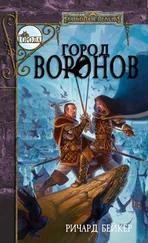Ричард Бейкер - Valiant Dust
Здесь есть возможность читать онлайн «Ричард Бейкер - Valiant Dust» весь текст электронной книги совершенно бесплатно (целиком полную версию без сокращений). В некоторых случаях можно слушать аудио, скачать через торрент в формате fb2 и присутствует краткое содержание. Издательство: Tom Doherty Associates, Жанр: Старинная литература, на английском языке. Описание произведения, (предисловие) а так же отзывы посетителей доступны на портале библиотеки ЛибКат.
- Название:Valiant Dust
- Автор:
- Издательство:Tom Doherty Associates
- Жанр:
- Год:неизвестен
- ISBN:нет данных
- Рейтинг книги:4 / 5. Голосов: 1
-
Избранное:Добавить в избранное
- Отзывы:
-
Ваша оценка:
- 80
- 1
- 2
- 3
- 4
- 5
Valiant Dust: краткое содержание, описание и аннотация
Предлагаем к чтению аннотацию, описание, краткое содержание или предисловие (зависит от того, что написал сам автор книги «Valiant Dust»). Если вы не нашли необходимую информацию о книге — напишите в комментариях, мы постараемся отыскать её.
Valiant Dust — читать онлайн бесплатно полную книгу (весь текст) целиком
Ниже представлен текст книги, разбитый по страницам. Система сохранения места последней прочитанной страницы, позволяет с удобством читать онлайн бесплатно книгу «Valiant Dust», без необходимости каждый раз заново искать на чём Вы остановились. Поставьте закладку, и сможете в любой момент перейти на страницу, на которой закончили чтение.
Интервал:
Закладка:
“It shouldn’t be too bad, Amira. In all honesty, the Léopard is a pretty reliable machine, and simple enough to operate. I would worry about damage to the plenum skirt and lift plates from ground impacts—the most important rough-terrain refit is a heavy-duty shield for the undercarriage, such as it is. Boulder fields and rocky, uneven ground are pretty punishing on grav tanks.” Cheney considered the question for a long moment. “At a guess, I think you’ll lose about ten percent of your effective force per week of hard operations to minor failures. Those vehicles can be recovered and put back into service fairly easily.”
“If we had any tank recovery vehicles,” Zakur observed from his place by the door.
Cheney winced. “Well, yes. But any heavy-lift grav transport could do the job of moving a Léopard back to the depot.”
I’d wager we don’t have a lot of those either, Ranya thought. The districts where the Caidists operated, and where the Royal Guard attempted to go, noticeably lacked modern heavy construction equipment and transport assets. And the Caidist rebels loved nothing better than ambushing sultanate forces when they tried to clear crash sites or recover damaged equipment.
“I will make sure to pass that along to our field commanders,” Ranya told the Montréalais. “Thank you, Major Cheney. Please let me know the next time you receive a request to put Republic equipment in service without adequate preparation first. I may be able to do something about that.”
“I will, Amira,” Cheney promised. He bowed and left, striding quickly across the marble-floored hallway outside the salon.
“Idiots,” Ranya muttered.
“In the major’s defense, he is new here,” Zakur reminded her.
“I wasn’t speaking about the major,” Ranya replied. She thought of a roomful of overdecorated Gadiran colonels and brigadiers, and wondered which one had convinced General Mirza to throw an expensive new weapons system into conditions that virtually guaranteed a force crippled by preventable faults within five or six weeks. “What do I have to do to make an impression on the generals? If they’re not comfortable listening to me, you would think they’d at least listen to common sense! Or do they think that a pair of breasts invalidates whatever advice might follow?”
“I would not presume to comment on … that,” Zakur said, which earned him a sharp look from Ranya. As it happened, the guard captain was happily married and very, very careful to avoid anything close to impropriety, except when he thought that a dry remark might do her some good. “I’m afraid it’s the message, not the messenger. You happen to have a good deal of expertise in a field that General Mirza is inclined to overlook. Even if you were the crown prince instead of the sultan’s niece, he would not pay much attention to issues of logistics and infrastructure.”
“Yes, but if I were a prince rather than a princess, I could at least put on the uniform and make him pay attention,” Ranya said. “The Montréalais and Aquilans seem to run perfectly competent militaries with females in the ranks.”
“Just because it is right for them does not mean it is right for us, Amira—not yet, at any rate. Do you really wish you had been born a man?”
“Not particularly,” Ranya admitted. If she’d been the son rather than the daughter of Kamal el-Nasir, her father’s death would have forced her onto the throne as a teenager. As a member of the royal household and a woman in Gadira’s chauvinistic society, she chafed under some annoying limitations, but she enjoyed her little freedoms. The sultan, on the other hand, could do nothing without careful calculation of the outcomes. Yes, she had to put up with patronizing behavior or annoying expectations such as finding a husband, but she’d been encouraged to gain a first-class education and she was more or less free to speak her mind; Gadira was not nearly as hidebound as some of the old Caliphate worlds. “But that does not mean I don’t find it frustrating at times, Tarek.”
The guard captain shrugged. “I was not born in the right family to hope for a brigadier’s star. The general staff is full of men who gained their positions through the merits of their titles, not their experience. That does not diminish the value of my service.”
Ranya allowed herself a sigh. Zakur came from a solidly middle-class background, but the most prestigious posts in the Royal Guard were traditionally given to bey families to curry favor or ensure loyalty. He’d probably never rise above major, through no fault of his own. The irony was not entirely lost on her.
She met the guard captain’s eyes, acknowledging his point, then returned her attention to the reports stacked on the fine desk. “The worst part of it is that using up the Léopards isn’t doing much good, by all the reports I can get my hands on,” she said. She picked up a handful of documents, and let them drop to the tabletop. Sultanate forces were bogged down in half a dozen districts, unable to press forward without heavy fire support, but every time armored forces deployed, civil protests and riots broke out like wildfire. “I’m beginning to wonder whether any amount of escalation would actually make a difference.”
“What other options are the Caidists and the urban radicals giving you, Amira?”
“Not many,” she admitted. And that begs the question of whether fighting is the right answer. She looked up at Zakur again. “I think I need to have a word with my uncle. Is he free?”
Zakur murmured into his comm unit, comparing notes with the rest of the palace’s security detail. “He’s just finishing a private discussion, Amira. You can find him taking coffee on the south terrace.”
“Thank you,” said Ranya. She gathered up her dataslate and a folder full of reports, and headed for the other side of the palace. As a member of the royal family, she could interrupt her uncle at almost any time, but as a matter of simple courtesy she tried to avoid derailing whatever schedule his handlers had worked out for the day. The sultan, of course, was never considered late for any meeting or audience, but the palace just ran better if disruptions were kept to a minimum.
The sunny south terrace, with its expansive swimming pools and vine-covered arbors, faced the bluffs overlooking the Silver Sea. Most non-Gadirans would have found it unpleasantly hot, but a light breeze blew in from the sea this afternoon. Sultan Rashid sat in the shade of a table-sized umbrella at his favorite reading spot, his wounded arm in a sling. Ranya could tell it pained him by the way he favored it. Beside him sat an older, white-bearded man in the long, plain robes of a scholar. As she approached, the old man rose and took the sultan’s hand.
Sultan Rashid exchanged some words with the scholar, then noticed Ranya’s approach. “Ah, good afternoon, my dear! Have you met Hadji Tumar ibn Sakak?”
“I don’t believe so, but I certainly know of him,” Ranya answered. Hadji Tumar was one of the most respected imams on Gadira, an allameh—or Quranic scholar—widely regarded as a moderate voice among the planet’s clerics. Finding him meeting with the sultan surprised her, since most imams took a dim view of House Nasir’s friendship with nonreligious offworlders and lack of zeal for policing moral infractions among the population; Tumar ibn Sakak visited El-Badi at his peril. Not even the most fanatical Caidist would think about physically threatening a well-known allameh, but the risk to his moral authority was very real.
Hadji Tumar salaamed, and then took her hand. “It is a pleasure to see you again, Amira,” he said. “We met when you were very small—I used to visit your father and speak with him from time to time. Sultan Kamal was a generous patron to my school.”
Читать дальшеИнтервал:
Закладка:
Похожие книги на «Valiant Dust»
Представляем Вашему вниманию похожие книги на «Valiant Dust» списком для выбора. Мы отобрали схожую по названию и смыслу литературу в надежде предоставить читателям больше вариантов отыскать новые, интересные, ещё непрочитанные произведения.
Обсуждение, отзывы о книге «Valiant Dust» и просто собственные мнения читателей. Оставьте ваши комментарии, напишите, что Вы думаете о произведении, его смысле или главных героях. Укажите что конкретно понравилось, а что нет, и почему Вы так считаете.












